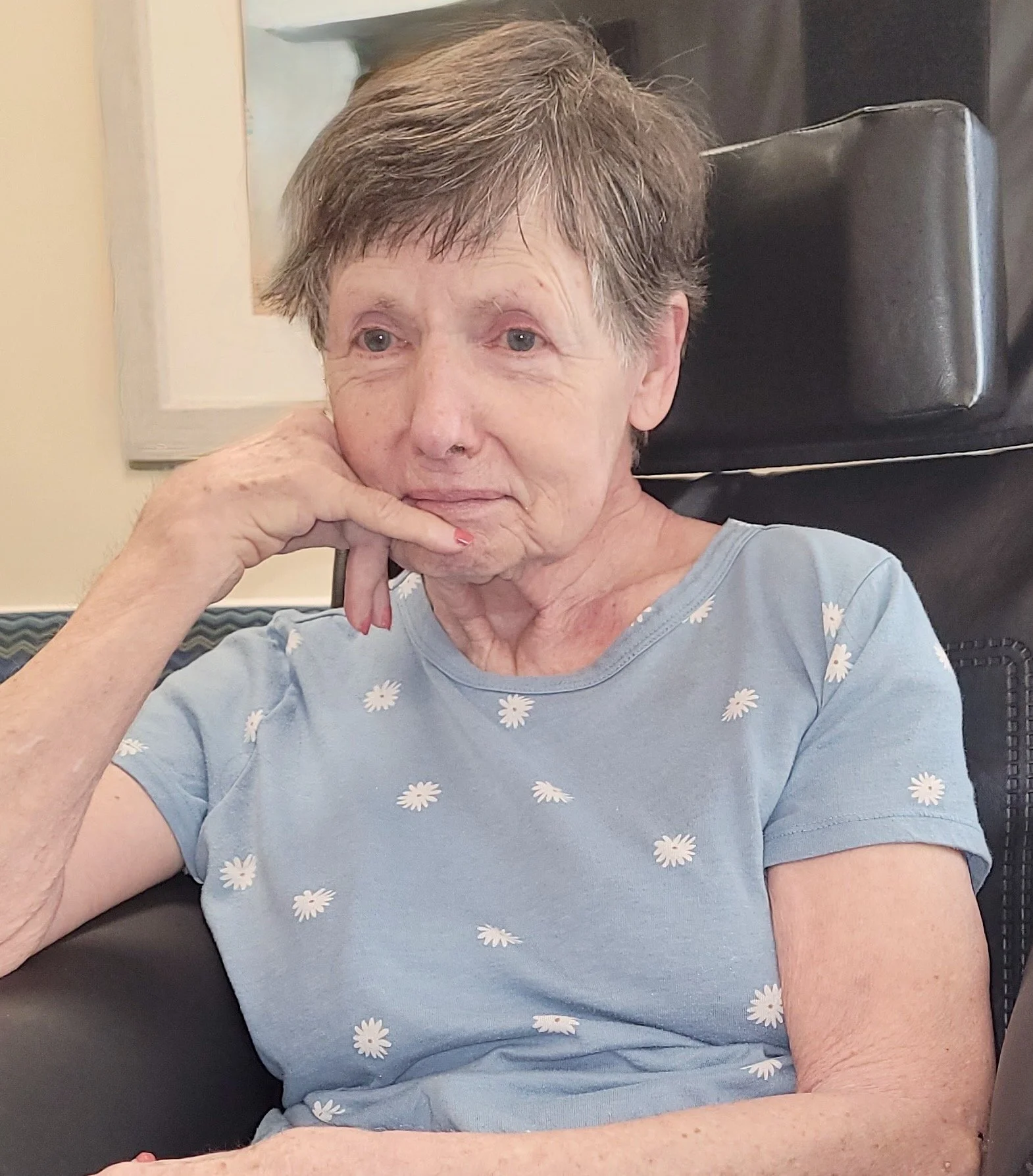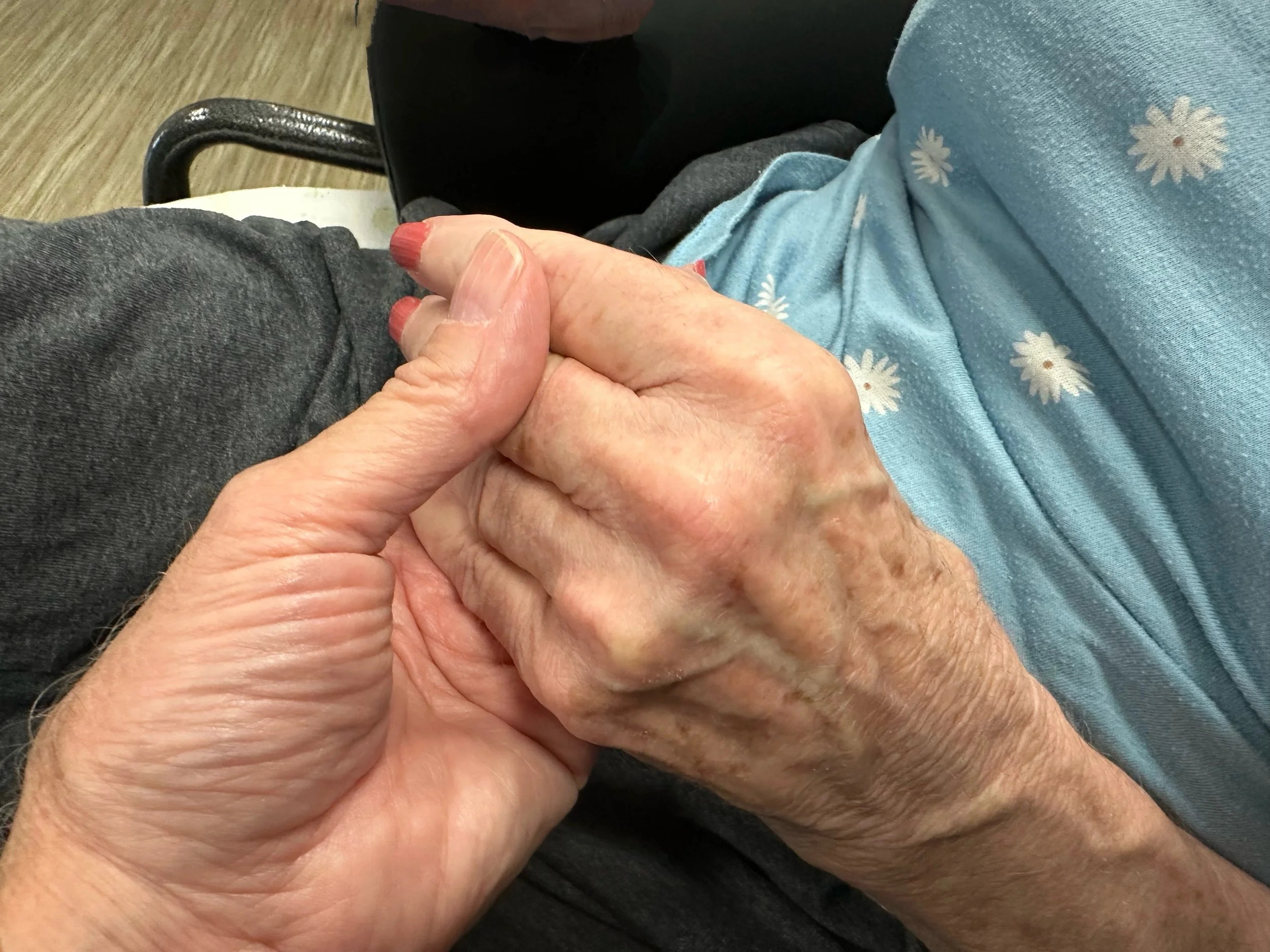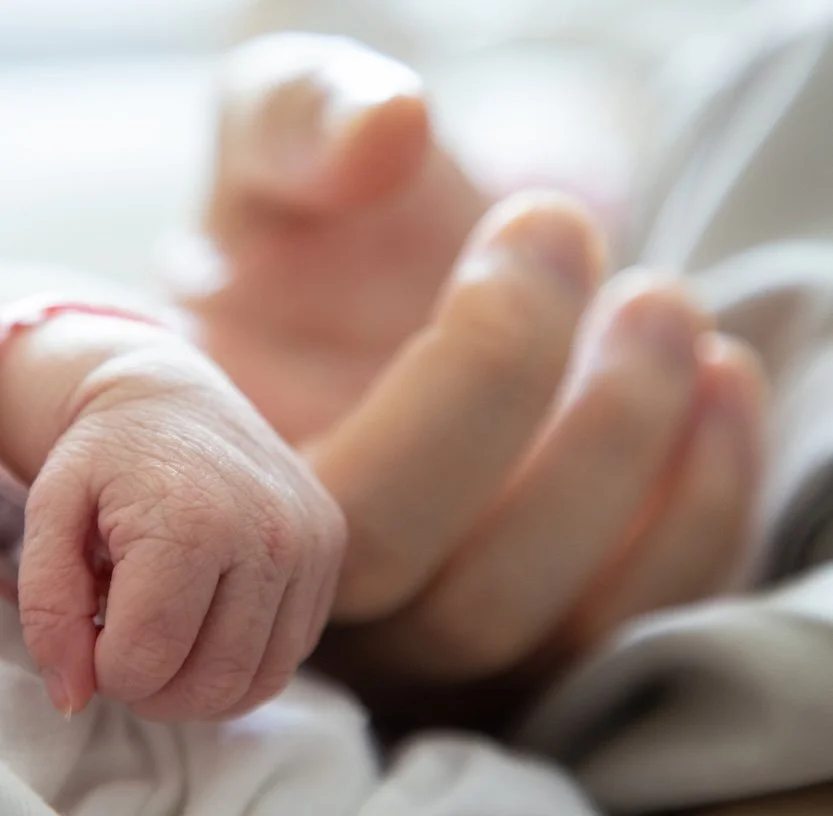Looking back, looking ahead: hand and in hand, no matter what
Almost three years ago, my post here was “21 Ways a 5-year-old and an Alzheimer’s Patient Are So Much Alike.” I recorded the similarities I’d seen after spending several days with my out-of-town grandson. A few examples:
So much alike . . .
• Once while I was with him, he slipped out of bed in the middle of the night, and I had no idea why. Those days Evelyn was wandering at night, too.
• He took his time getting ready and seemed even slower when we were in a hurry or on a schedule. Likewise, getting Evelyn dressed usually took longer than I’d allowed, and sometimes we were late.
• He read out loud all the time, whether he understood the words or not. So did Evelyn. She’d work through the newspaper from cover to cover, entertaining the rest of us as she read facts and statistics and names of foreign dignitaries we’d never heard before.
• He sometimes didn’t eat all the food on his plate; I was regularly finishing Evelyn’s meals those days, too.
• He always took my hand when we crossed the street. I always took Evelyn’s hand or arm when we were in a parking lot or at an intersection or walking over uneven squares on the neighborhood sidewalks.
. . . but also profoundly different
But, of course, some things were different. He was growing older: “You see the idiosyncrasies of early childhood disappearing in him,” I wrote.
But Evelyn was not changing for the better. “You see the limitations of childhood returning to her,” I wrote.
And since then, both patterns have continued. My growing grandson, 8 years old now, is brighter than ever, impressing us with what he’s learning in school, pleasing us with his progress playing the cello, entertaining us with his sense of humor, and surprising us with the number of thick library books he consumes in a week.
“She was smiling, but I didn’t get my camera out in time to catch it,” Evelyn’s hospice nurse told me when she sent me this picture Monday.
Meanwhile, Evelyn continues to decline. We don’t need to help her on a walk, because she’s not walking. Our goal now is to keep her from tumbling out of her wheelchair or losing our grip on her while taking her to and from the bathroom.
She has quit reading. And her spoken words are isolated from each other, almost whispered as if she’s talking to herself. Occasionally she responds appropriately with a complete sentence. This is always occasion for celebration.
There are no worries about her wandering in the night. She can’t get out of bed by herself, and she doesn’t try. She sleeps 14-16 hours every day, including long bedtimes almost every afternoon.
Sometimes she sleeps through a meal. Other times one of her aides sits patiently with her, encouraging one small bite at a time. When she does eat, she’s always the last one in her little dining room to finish. And sometimes she cleans her plate!
Hand in hand
But what I really want to mention is hand holding. One day last week, I was taken back in time when I was sitting with Evelyn at dinnertime.
Her hands were in her lap, but sometimes they shook erratically.
I took hold of one hand, and she squeezed my fingers as if she’d never let go. It would have been nice to believe this was some form of affection or at least recognition, but I knew it was just instinct.
I remembered the day years ago when I took my grandson’s hand in mine and he, too, responded without knowing who I was.
He was newborn, sleeping inside a clear plastic box in the hospital NICU. It had hinged doors large enough for me to insert my hand. I rested my forefinger on his tiny palm, and he gripped it firmly, tightly, as if he wanted to tell me hello.
Like Evelyn, my grandson had no idea of the love I was trying to convey by putting my hand in his. But I hoped he would somehow grab some sense of security and safety as his skin touched mine.
I hope the same for Evelyn. I pat her weak legs and bony arms when I visit in the afternoons and find her asleep in her bed. I rub her back and push her bangs aside when she’s sitting at the table, eyes closed but mouth opened for every bite the aide offers.
I kiss her forehead when I stand to leave and tell her, “I’ll see you tomorrow.” Sometimes I ask, “Will that be OK?” And sometimes, sometimes she nods her head and utters a quiet “uh-huh.”
It’s almost as good as the sign-off I share with my grandson in weekly Facetime visits. “I love you buddy,” I say. “Love you,” he answers.
Even as I hope that love between us can continue to grow, I want to believe some inkling of the love Evelyn felt for me will remain.
So I’ll keep holding her hand as long as she’ll let me.


